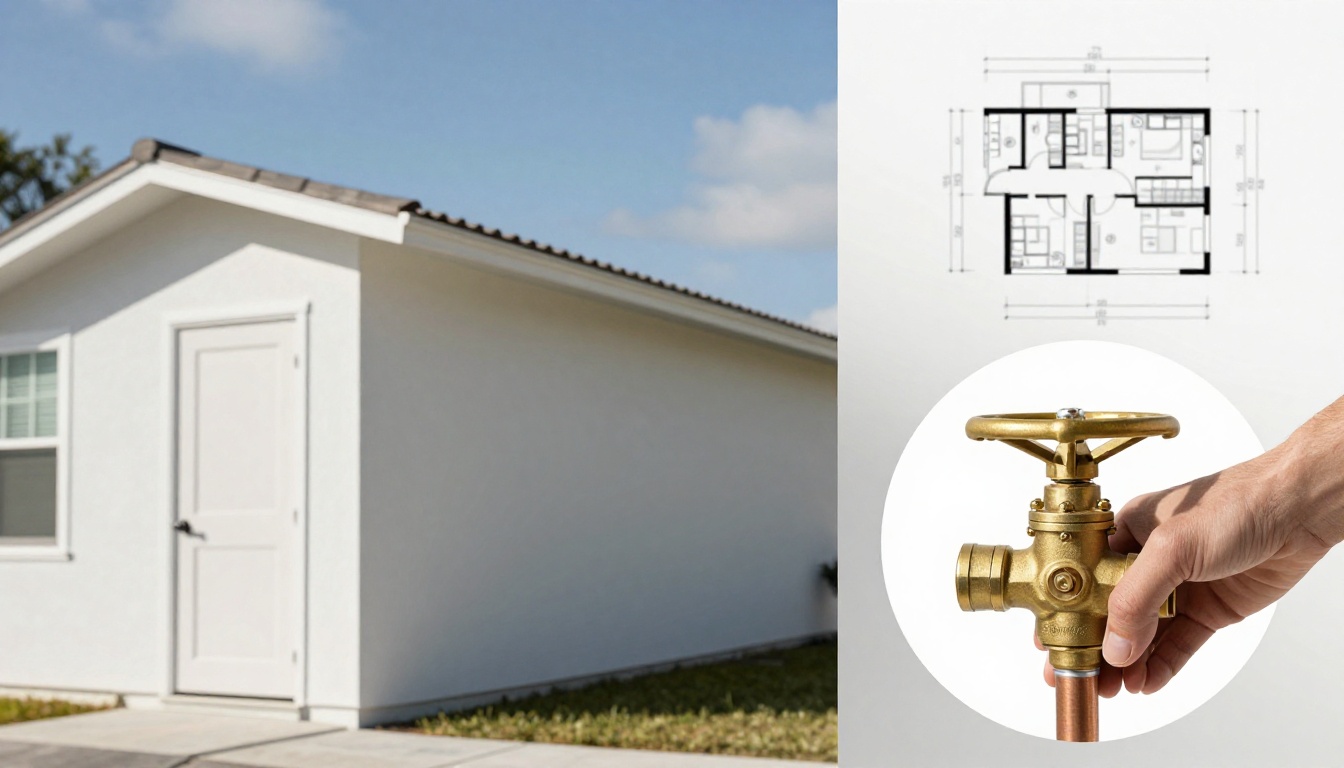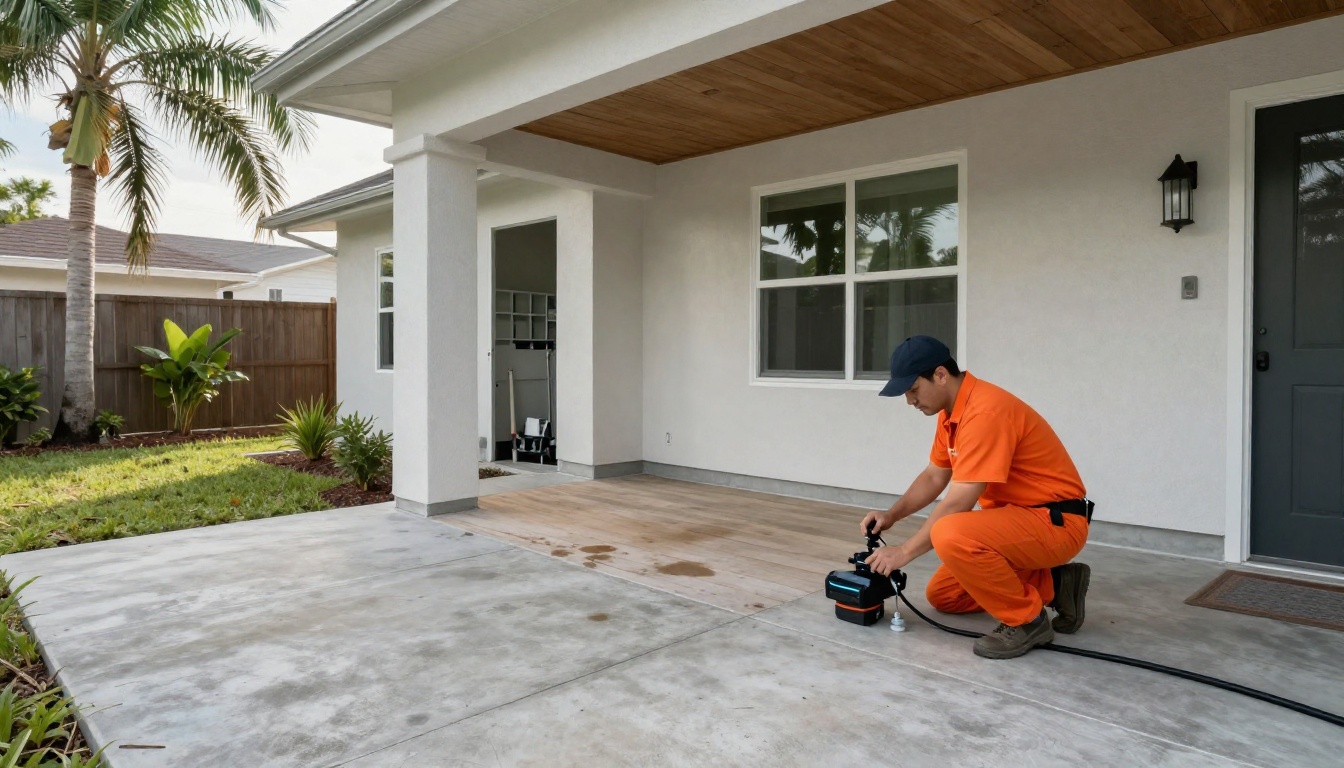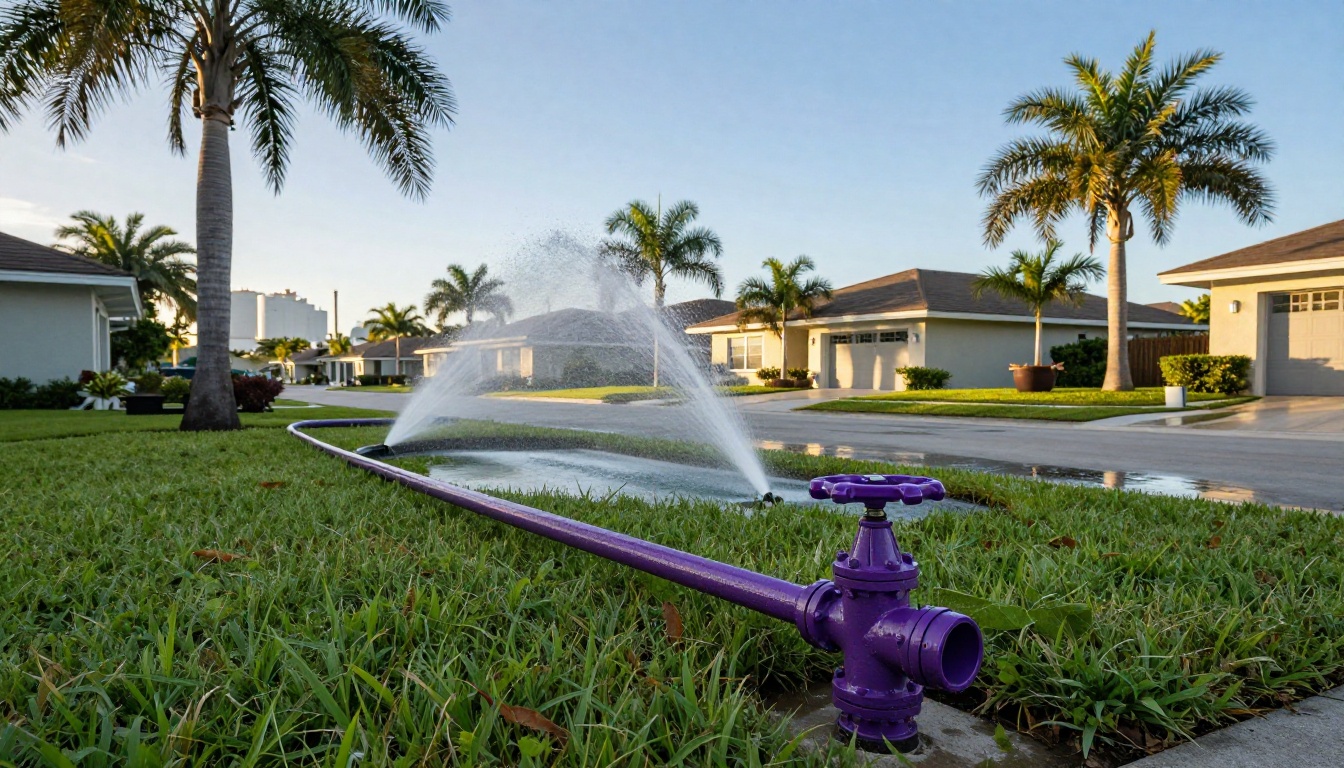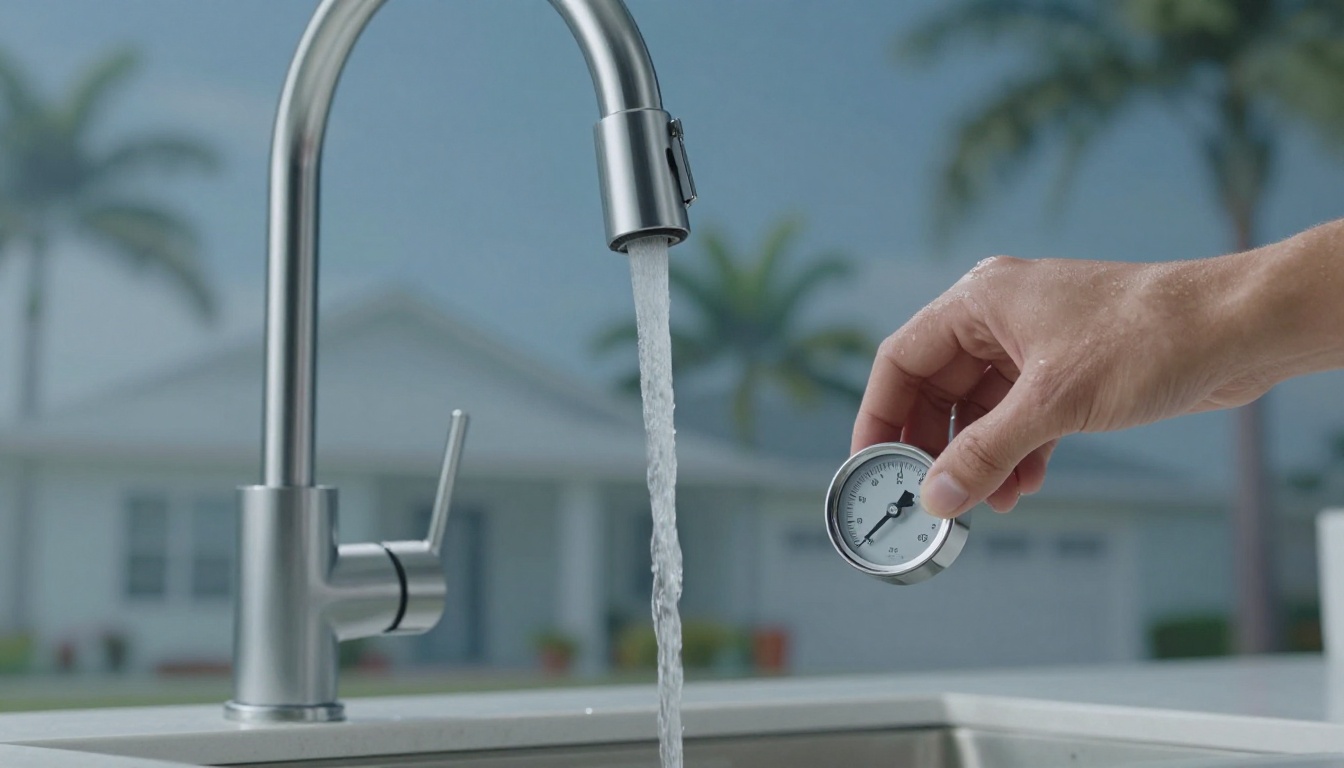Choosing the Best Water Filtration System for Cape Coral's Water
Choosing the Best Water Filtration System for Cape Coral's Water
Understanding Cape Coral’s Water Supply
Cape Coral’s water supply primarily comes from groundwater sources, including the Mid-Hawthorn aquifer, as well as advanced treatment methods like reverse osmosis plants. These systems help provide clean drinking water to residents, but they are under increasing strain due to population growth and environmental challenges. The aquifer is a critical resource, but its depletion and rising salinity levels have raised concerns about long-term sustainability.
As the city continues to grow, so does the demand on its water resources. This has led to discussions about balancing development with conservation efforts. Residents should be aware of these challenges because they directly impact the quality and reliability of their tap water. Understanding where your water comes from is the first step in ensuring it meets your household’s needs.
Common Water Quality Issues in Cape Coral
Residents of Cape Coral often face water quality issues such as high mineral content, elevated salinity levels, and occasional contaminants. These problems stem from natural factors like the region's geology and human influences such as overuse of the aquifer. Rising salinity, in particular, has become a growing concern, affecting the taste and usability of water for daily tasks.
Recent events, such as water restrictions during droughts or infrastructure repairs, have highlighted vulnerabilities in the system. These disruptions can inconvenience residents and underscore the importance of having reliable water filtration at home. Addressing these challenges ensures better-tasting water and protects appliances from mineral buildup and corrosion.
Why Home Water Filtration is Important in Cape Coral
Investing in a home water filtration system is crucial for Cape Coral residents who want to improve the taste, odor, and safety of their water. With concerns about aquifer sustainability and aging infrastructure, filtration provides an added layer of protection against potential contaminants. It also helps reduce sediment and chlorine, which can affect both health and appliance longevity.
Beyond safety, filtration enhances comfort by addressing hard water issues that lead to scale buildup in plumbing and appliances. For families seeking peace of mind, a filtration system ensures consistent access to clean, great-tasting water regardless of external factors. Transitioning to filtered water is a proactive step toward safeguarding your household’s well-being.
Types of Water Filtration Systems
When choosing a water filtration system, it’s important to understand the available options. Whole house filters, reverse osmosis systems, under-sink filters, water softeners, and point-of-use filters each serve different purposes. Whole house systems treat all incoming water, while under-sink and point-of-use filters focus on specific taps or appliances.
Reverse osmosis systems are highly effective at removing dissolved solids and impurities, making them popular in areas like Cape Coral. However, they can be costly to install and maintain. On the other hand, water softeners target hard water minerals, preventing scale buildup but not removing contaminants. Each option has its pros and cons depending on your specific needs.
Ultimately, selecting the right system depends on understanding your water quality issues and filtration goals. Some households may benefit from combining technologies, such as pairing a whole house filter with a reverse osmosis unit. Evaluating these choices ensures you invest in a solution tailored to Cape Coral’s unique water challenges.
Whole House Filtration Systems
Whole house filtration systems treat all water entering your home, addressing issues like sediment, chlorine, and unpleasant odors. In Cape Coral, these systems are especially useful for reducing chlorine taste and removing particles that could harm plumbing or appliances. By filtering water at the source, they provide comprehensive protection throughout the household.
Reverse Osmosis (RO) Systems
Reverse osmosis systems use a semi-permeable membrane to remove up to 99% of dissolved solids, including salts and minerals, making them ideal for Cape Coral’s high-salinity water. These systems are widely used in Southwest Florida due to their effectiveness in producing pure, clean drinking water. While RO units require regular maintenance, their ability to tackle local water challenges makes them a top choice for many homeowners.
Water Softeners and Other Specialty Devices
Water softeners are designed to combat hard water by reducing calcium and magnesium levels, which cause scaling in pipes and appliances. In Cape Coral, where mineral-rich water is common, softeners complement filtration systems by extending the life of plumbing fixtures and improving cleaning efficiency. However, they don’t address contaminants, so pairing them with another filtration method may be necessary for complete water treatment.
Factors to Consider When Choosing a Filtration System
Selecting the best filtration system starts with interpreting your water quality report or test results. Look for details about hardness, salinity, and any detected contaminants. Understanding these metrics helps you prioritize whether you need a system focused on taste improvement, contaminant removal, or both.
Consider your household’s water usage patterns and budget when making a decision. High-flow households might benefit from whole house systems, while smaller families could opt for under-sink or point-of-use solutions. Installation costs and ongoing maintenance requirements are also key factors, as neglecting upkeep can compromise system performance.
Finally, think about your filtration goals—whether you’re aiming for safer drinking water, scale prevention, or overall water quality enhancement. Energy efficiency and environmental impact may also influence your choice. Taking time to evaluate these aspects ensures you select a system that meets your needs without unnecessary expense.
City Water vs. Well Water: What’s the Difference?
Homes connected to Cape Coral’s municipal water supply receive treated water that meets federal standards, but this doesn’t eliminate all potential issues. Chlorine, residual minerals, and occasional contaminants can still affect taste and appliance performance. Municipal water users often choose filtration systems to refine their water further.
In contrast, homes relying on private wells face more variability in water quality. Wells are prone to higher mineral content and contamination risks, requiring rigorous testing and specialized filtration solutions. Whether you’re on city water or a private well, understanding your source informs the type of filtration system you’ll need to achieve optimal results.
Initial Assessments: Testing Your Water
Before purchasing a filtration system, testing your water is essential to identify specific issues. Common tests in Cape Coral check for hardness, salinity, pH levels, and contaminants like nitrates or heavy metals. Local resources, including certified labs and utility-provided reports, can guide you through this process.
Knowing what’s in your water allows you to make informed decisions about the most effective filtration solution. Skipping this step can lead to mismatched systems that fail to address your actual needs. Prioritizing accurate testing sets the foundation for a successful filtration strategy.
Filtration System Installation and Maintenance
Installing a water filtration system requires careful consideration of whether to go DIY or hire a professional. While some systems are straightforward to set up, others involve complex plumbing work that benefits from expert assistance. Ensuring proper installation avoids leaks and maximizes system efficiency.
Maintenance is equally important, as neglected systems lose effectiveness over time. Regularly replacing filters and checking components keeps your water clean and extends the system’s lifespan. Following manufacturer guidelines ensures optimal performance and prevents costly repairs down the line.
Common Mistakes to Avoid When Choosing a Filtration System
One common mistake is skipping water testing before purchasing a filtration system. Without knowing your water’s composition, you risk buying a system that doesn’t address your specific concerns. Another pitfall is underestimating maintenance needs, which can lead to subpar performance and wasted investment.
Ignoring local water conditions is another frequent error. Cape Coral’s unique challenges, such as high salinity and mineral content, demand targeted solutions. Choosing a generic system without considering these factors can result in inadequate filtration. Being mindful of these pitfalls helps ensure you make a smart, informed decision.
How Local Water Restrictions May Affect Your Home Water Use
Recent water restrictions in Cape Coral, such as irrigation bans and limits on aquifer drawdown, highlight the importance of conserving and optimizing water use. These measures aim to protect the region’s limited resources but can create challenges for households reliant on consistent water availability.
Effective filtration becomes even more critical during restricted periods, as it ensures every drop of water entering your home is usable and safe. Investing in a robust filtration system not only addresses current restrictions but also prepares you for future uncertainties related to water supply and quality.
Recommended Brands and Certified Systems for Cape Coral
When shopping for a water filtration system, look for reputable brands with NSF certification, indicating compliance with rigorous testing standards. Companies like Culligan, Aquasana, and Pelican offer models designed to handle Southwest Florida’s water challenges effectively. These brands are trusted for their durability and performance.
While recommendations provide a starting point, conducting independent research and consulting professionals ensures you find the best fit for your home. Local experts familiar with Cape Coral’s water issues can offer personalized advice, helping you navigate the wide range of available options. Investing in a certified system guarantees peace of mind and lasting value.
Frequently Asked Questions
-
How do I know what’s in my Cape Coral tap water?
To determine what’s in your tap water, review your city’s annual water quality report or conduct independent testing if you’re on a private well. Look for information on contaminants, hardness, and salinity levels, as these will guide your filtration decisions. Professional labs in Cape Coral can provide detailed analyses if needed.
-
Is reverse osmosis the best choice for Cape Coral water?
Reverse osmosis is an excellent choice for Cape Coral water due to its ability to remove salts, minerals, and other impurities. If your water has high salinity or mineral content, RO systems excel in addressing these issues. However, if your primary concern is chlorine taste or odor, simpler filtration methods may suffice.
-
How often should I change my water filters in Cape Coral?
Filter replacement frequency depends on usage and water quality, but most manufacturers recommend changing filters every 6 to 12 months. In Cape Coral, where water may contain higher sediment or mineral levels, more frequent changes might be necessary. Always follow the manufacturer’s guidelines to maintain optimal performance.
-
What is the difference between water softeners and filtration systems?
Water softeners reduce hard water minerals like calcium and magnesium, preventing scale buildup in plumbing and appliances. Filtration systems, on the other hand, remove contaminants such as chlorine, sediments, and harmful chemicals. Depending on your needs, you may require one or both systems to achieve the desired water quality.
-
Are there rebates or incentives for water filtration in Cape Coral?
While direct rebates for water filtration systems are rare, some utility programs or tax incentives may apply. Check with local authorities or your water provider for updates on energy-efficient appliance rebates or conservation initiatives. These opportunities can offset installation costs and encourage sustainable practices.
Conclusion
Choosing the right water filtration system in Cape Coral is vital given the area’s unique water quality and supply challenges. From high salinity to mineral-rich groundwater, understanding these factors ensures you select a system that meets your family’s needs. Water testing, thorough research, and professional consultation are essential steps in finding the best solution.
By investing in a certified and suitable filtration system, you can enjoy cleaner, safer water while protecting your home’s plumbing and appliances. Take action today by assessing your water, educating yourself about available options, and consulting with experts to enhance your household’s water safety and comfort. Remember, Cape Coral’s water challenges are real, but the right filtration system can bring peace of mind and long-term benefits.




Get a Free Estimate
Got a plumbing issue? We’re here to help! Whether you need emergency repairs, routine maintenance, or have a question about our services, our team is ready to assist you.
